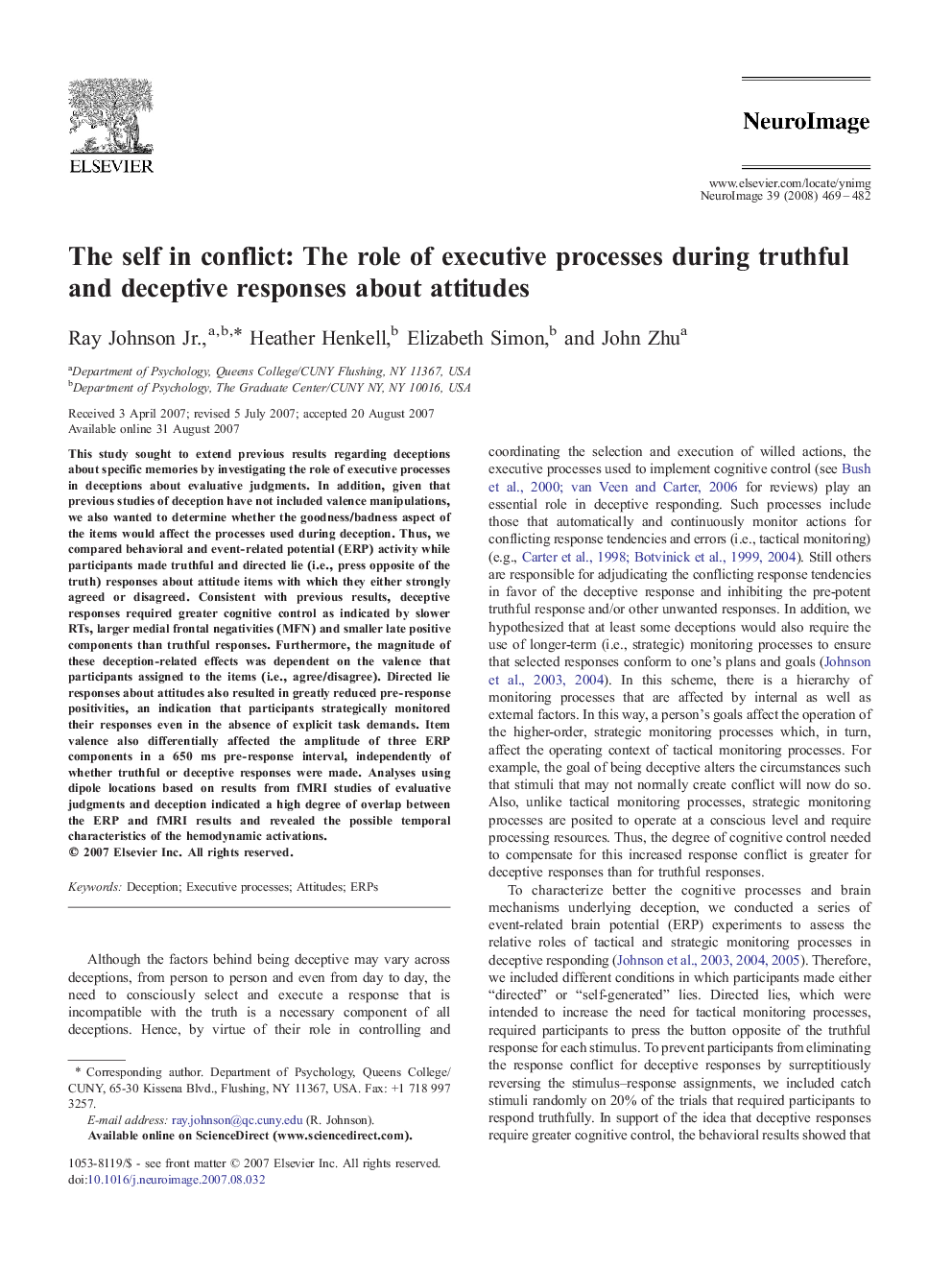| Article ID | Journal | Published Year | Pages | File Type |
|---|---|---|---|---|
| 3073352 | NeuroImage | 2008 | 14 Pages |
This study sought to extend previous results regarding deceptions about specific memories by investigating the role of executive processes in deceptions about evaluative judgments. In addition, given that previous studies of deception have not included valence manipulations, we also wanted to determine whether the goodness/badness aspect of the items would affect the processes used during deception. Thus, we compared behavioral and event-related potential (ERP) activity while participants made truthful and directed lie (i.e., press opposite of the truth) responses about attitude items with which they either strongly agreed or disagreed. Consistent with previous results, deceptive responses required greater cognitive control as indicated by slower RTs, larger medial frontal negativities (MFN) and smaller late positive components than truthful responses. Furthermore, the magnitude of these deception-related effects was dependent on the valence that participants assigned to the items (i.e., agree/disagree). Directed lie responses about attitudes also resulted in greatly reduced pre-response positivities, an indication that participants strategically monitored their responses even in the absence of explicit task demands. Item valence also differentially affected the amplitude of three ERP components in a 650 ms pre-response interval, independently of whether truthful or deceptive responses were made. Analyses using dipole locations based on results from fMRI studies of evaluative judgments and deception indicated a high degree of overlap between the ERP and fMRI results and revealed the possible temporal characteristics of the hemodynamic activations.
